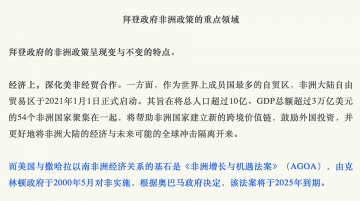The Central Committee of China’s influential Communist Youth League (CYL) published a rather comical (unintentionally of course) comparison between U.S. and Chinese engagement in Africa that made the case as to why China, not surprisingly, is the more optimal partner for the continent.
The arguments that the author, Yi Fan, lays out in the article are not particularly compelling as it’s plainly evident she lacks even a basic understanding of U.S. policy in Africa. The extent of her reasoning is essentially China is good, the U.S. is bad, end of story — so, substantively, there’s not much here.








